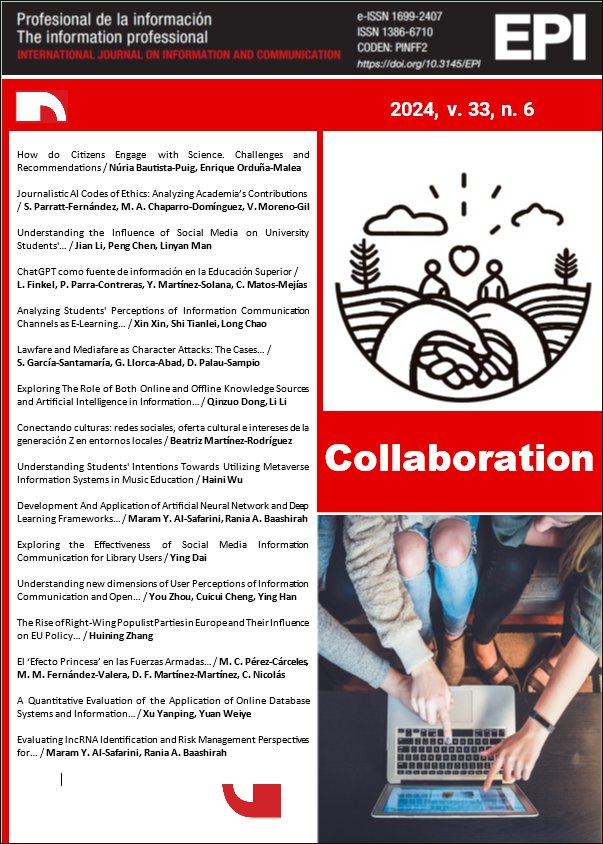Journalistic AI Codes of Ethics: Analyzing Academia’s Contributions to their Development and Improvement
DOI:
https://doi.org/10.3145/epi.2024.0602Keywords:
Journalism, Artificial Intelligence, Ethical Codes, Ethical Guidelines, Newsrooms, Media Organizations, Academia, Recommendations, Proposals, Professional-Academic Divide.Abstract
Journalists are expected to make an ethical use of artificial intelligence (AI) systems in their editorial work in order to maintain journalistic principles while adapting to AI. The growing academic interest in the journalistic use of AI and its ethical limits results in research of potential value for newsrooms. The first purpose of this study is to outline emerging ethical codes and guidelines on the use of AI in newsrooms developed and made public by news organizations worldwide. Secondly, it aims at systematizing proposals and recommendations from academic sources that could potentially contribute to develop new ethical codes and guidelines on the use of AI in newsrooms and to improve the existing ones. The third purpose is to assess to what extent such proposals and recommendations appear in ethical codes and guidelines. Ultimately, this allows us to find out whether academic contributions could be better exploited by media practitioners. Documents from 84 media organizations of Europe, America, and Asia, and eight major proposals or recommendations from twelve academic papers were identified and analyzed. Results show that, at present, 40 ethical codes or recommendations around the world are accessible to the public. Proposals coming from academic sources are related to accuracy and credibility, accessibility, relevant contents, diversity, transparency and accountability, data and privacy, human factor, and interdisciplinary teams. One significant finding is that the proposals have a limited presence in media organizations' ethical codes on AI and the ones with greater presence focus on the importance of the human factor, both in editorial decision-making and in the creative part of the journalistic process. Ultimately, the results highlight the need to discuss the professional-academic divide.
Downloads
Downloads
Published
How to Cite
Issue
Section
License
Copyright (c) 2025 Profesional de la información

This work is licensed under a Creative Commons Attribution 4.0 International License.
Dissemination conditions of the articles once they are published
Authors can freely disseminate their articles on websites, social networks and repositories
However, the following conditions must be respected:
- Only the editorial version should be made public. Please do not publish preprints, postprints or proofs.
- Along with this copy, a specific mention of the publication in which the text has appeared must be included, also adding a clickable link to the URL: http://www.profesionaldelainformacion.com
- Only the final editorial version should be made public. Please do not publish preprints, postprints or proofs.
- Along with that copy, a specific mention of the publication in which the text has appeared must be included, also adding a clickable link to the URL: http://revista.profesionaldelainformacion.com
Profesional de la información journal offers the articles in open access with a Creative Commons BY license.




